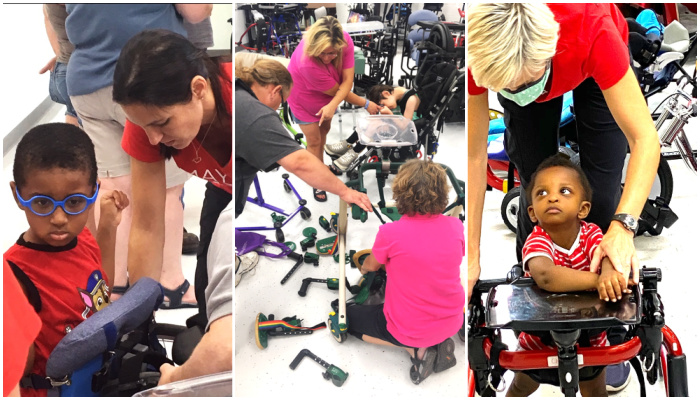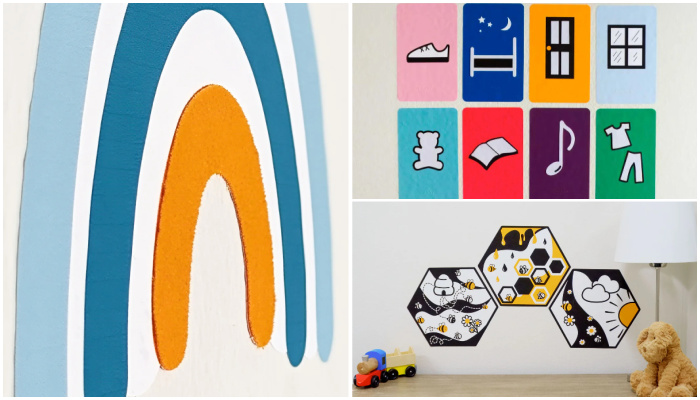Maintaining your relationship when you have a disabled child

Here’s the million dollar question…
Are you more likely to divorce if you have a disabled child?
The answer would seem to be “Yes.”
A study in the late nineties found that parents of blind children were twice as likely to divorce as parents of non-disabled children! That is a shocking statistic, even today, and it would tend to suggest that having a disabled child actually predisposes your relationship to divorce.
Before we can devise a plan to deal with this, we must first have a firm idea of why divorce has become so common in the very families that most need two committed adults to thrive.
Knowing where the problems are likely to raise their heads will give you a jump start on dealing with them effectively. It will always be easier dealing with a problem if, as a couple, a unit, you have a willingness to identify problems while resolution is still a real possibility and you have a template to deal with issues as they arise.
Why Relationships Break Down
Each of us has an entirely unique relationship with our partner/significant other/child’s other parent, and whether we are in a married, unmarried, or same sex relationship, whatever our plans or expectations, most of us believe that the relationship will be self-correcting and will not need conscious thought or effort…
But then your child was born with a disability.
The enormous pressure on a couple after having a baby is exponentially increased when your child is born with a disability. In addition to dealing with the doctor’s appointments and therapy sessions and learning about your child’s particular disability, you also have to learn to cope with your emotions and grief both as individuals and as a team.
Our article on The Grieving Process points out that both parents are dealing with highly individual grief responses; it’s readily apparent why there can be a failure of the relationship to do well in the rocky soil of both parents trying to come to an acceptance of their child’s blindness.
Often normal support mechanisms of grandparents, aunties, and friends disappear when a child has been born with a disability; these people may be having their own grief response to the news that your child is blind; they may feel, or even verbalize, to you that they would not be able to cope with the child unless the you were there to “deal with emergencies.” Opportunities for time spent away from your child and with your partner are thin on the ground when no one is comfortable enough to care for your child.
Family life becomes first focused on, then consumed with, and finally defined by the disability. Time spent together with your partner can be confined to hospital visits—where often there is not even a daycare facility to allow you a short break to discuss matters away from your child. Time away from work and holiday time is spent on home visits, clinic visits, and meetings about educational provision or mobility issues or a dozen other things that feel vital to “being a good parent today.” You can become so engrossed in advocating for your child that you don’t recognize your own needs as a couple, never mind address those needs.
There remains a certain amount of social stigma which can mean parents become reluctant to go out together with their child. People may stare and comments from strangers can make even a trip to the local recreational area a difficult proposition. Remember: blindness is a low incidence disability even within the mainstream of disabled children and the general public is neither used to seeing a child with this disability nor comfortable interacting with him.
There remains a strong tendency within family units with a disabled child to resort to traditional gender roles, along the lines of “I will raise your children while you pay all my bills,” which is fine if you both wholeheartedly accept this; if not—keep talking and keep compromising!
Often, one parent does the caring while the other parent focuses more time in wage-earning. This can cause further erosion of the relationship. There is often a real lack of contact and a perceived inequality in the sharing of the responsibilities. This can degenerate further as one partner cannot take calls from therapists or clinicians because the other partner is the one who “does all that stuff” and so one partner feels eventually that he/she has no say in the management of the disability, while the other parent may feel unfairly burdened.
You can also add to this mix career anxiety. Job prospects in a career that may have been vitally important can become limited when the amount of time the parent has to spend on the job decreases and this may be a major disruption in a person’s life when he/she has always defined their personal worth by their working-life successes.
Devising Your Relationship Plan
Now that you’re aware of the dangerous waters ahead of you, it’ll be easier for you to devise a plan that will help keep your relationship sailing smoothly…
- Make Time to Meet.
Some parents find it useful to have a structured information/opinion exchange at a predetermined point every day; this means that you are both singing from the same hymn sheet and there are no unexpected solo descants. - Get Your Money in Order.
If you have your financial planning done in the early days, the increased financial expenditure that accompanies every disabled child will not come as (such) an unpleasant shock. - Stay on the Same Page.
Review what you are both thinking periodically and together. Lots of arguments would not exist if there was a relaxed dialogue between you in the first instance. - Do What Works.
Can’t get a relative to watch your child for an hour while you enjoy a meal together? A Swedish furniture store near you has a safe, well run daycare service that happily accepts kids with disabilities, and a restaurant where you can get an inexpensive meal and have a quiet conversation. It may not be what you were originally thinking of for you anniversary dinner, but things could definitely be worse! - Use Other Mediums.
Try phoning when you know you can’t get home on time, or leave notes, or email, or write on the bathroom mirror—but keep communicating! - Find Time
Use “nap time” or “kindergarten time” as personal space for your relationship occasionally; you need to nurture a relationship to keep it healthy. - Say Yes to Help
Be open to more “unconventional” sources of help. Lots of people will want to help you, your family, and your little one: it’s just our experience that it’s seldom the people you’d think would want to help. Stay open to offers of help and judge people on how they behave towards you—your neighbors, older church members, people in your community who see you struggling and want to come to your assistance; they may all have something valuable to offer your family, perhaps have past experience with a very similar situation, or specific skills which can help. You can politely refuse and continue to struggle or you can reach out to accept that helping hand. Also consider seeking out a marriage or family counselor to help develop a relationship plan.
Life is change and coping with change requires that we adapt. How we adapt is up to us. If you expect the excitement and romance of the first few years of your relationship, you will be disappointed; this part of your relationship is about sheer hard work, not “sunshine and roses.”
And you could say “we’ll never eat out (or do whatever) again,” or you could get creative. So what’s it to be?
“Finger food for three, at home… again?!”

Related Posts

Assistive Technology, Support
May We Help: Engineering Independence for People with Disabilities
May We Help is dedicated to designing and building custom solutions that help individuals of all ages achieve mobility, access, and independence, all at no cost.

Parenting
Sensory Wall Art: 5 Tips to Create a Room Your Blind or Low-Vision Child Will Love
Even if your child can’t see their surroundings, personalizing and decorating their room with thoughtful, sensory-friendly design can make a big difference in their confidence, independence, and joy.

Special Needs, Support
Five Steps to Finding Joy: Faith and the Journey of Parenting with Special Needs
Through faith special needs parents can learn to cultivate a deep, enduring state of joy.